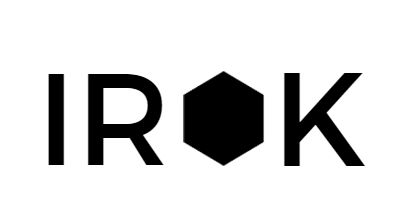Getting back to the states post-India has been interesting. Landing in one of the most doer cities, NYC, has been a shock to say the least. Despite all my years spent in this environment and mindset, just two months in the east shifted me to a new place. Probably because of how natural and human it felt. Makes you think maybe this is how we’re all meant to live—a way of being so foreign to my years of American conditioning, yet one I so quickly internalized.
There have been many little moments I’ve noticed since getting back that represent this. Things we do differently here that now feel pointed, unconscious, cold. Things that urged me to sit down, ruminate, then write here.
Then I remembered my Vipassana learnings…this sounds like a craving or aversion arising…pause. What’s the Dhamma view?—our reality is our own responsibility. My perception of the external world is simply a projection of my internal world.
Post redirect.
I’m an observer. I’m also a problem solver. And, with my first-principles mind, I like looking for the core of problems and solving through the roots. This was I think what drew me to mental health. I believe the root of many if not all of our problems in the world stem from a diseased and asleep human mind—a mind that Eckhart Tolle would say is not even human at all, but a conditioned ego holding us hostage and separate from our true divine nature as connected beings.
A lot of my writing reflects this—problem-solving and mental health. So it’s been an interesting, humbling, experience going deeper down my own journey, and realizing that the core of many spiritual teachings stems from the ever-returning cycle of coming back to self. That all ‘problems’ I notice begin from within—the place inside in the moment I decide to label something as a problem. And the truest way to overcome the suffering caused by these perceived problems is to cleanse my lens.
^I reworded that many times, knowing if not framed correctly I’d lose most of you, perhaps thinking: “What about poverty? Racism? Climate change? COVID-19? Are these not problems? We’ve lost her to the woo woo ether.”
This is where I ask you to either stick with me or, if inclined, pick up one of these books that might help you bridge this way of thinking towards where I’m speaking from:
Awareness by Anthony de Mello
Untethered Soul by Michael A. Singer
I Am That by Nisargadatta Maharaj
The idea I’m trying to express with the limited words available to capture it is that our perceptions create our reality, not the other way around. And deeper…our collective perceptions form our collective reality.
In Alan Watts’ words,
“Cheer up. You can’t blame anyone else for the kind of world you’re in”.
Or, more poignantly, a quote from Maharaj now taped to the journal I carry everywhere,
“You can spend an eternity looking elsewhere for truth and love, intelligence and goodwill, imploring God and man—all in vain. You must begin in yourself, with yourself—this is the inexorable law. You cannot change the image without changing the face. First realize that your world is but a reflection of yourself and stop finding fault in that reflection. Attend to yourself, set yourself right—mentally and emotionally. The physical will follow automatically. You talk so much of reforms, economic, social, political. Leave alone the reforms and mind the reformer. What kind of world can a man create who is stupid, greedy, heartless?”
How do we set ourselves right—cleanse our lens? Through all the methods I’ve written extensively about on here. Mindfulness, meditation, yoga, psychedelics, whatever helps one tune in, and it’s a continuous practice. Not an hour in your morning to check off the list, but a practice one chooses to live by, to be a better human for themselves and others. It’s pausing in an inevitable moment of ego, humbly checking in, then choosing the way of compassion.
So here I am, taking a pause and shifting this post’s topic after wanting to drone on about the contrasts between the east and the west…and all the perceived problems that arose in my mind and heart.
The question I’m now pondering is, what’s the balance between acceptance and action? What’s the balance between striving to solve world problems, and cultivating acceptance for all that is?
What’s become clear to me after my time over there, and after years spent unpacking my problem-solving, achievement-focused, mission-driven mind, is that in order to create positive change for the world, I need to
put as much energy into my own mental wellbeing as I do for the work, and
create for the collective, not the self
And the paradox is, when building from that place, upside is empowered, not sacrificed.
I’m in the midst of testing and exploring these ideas, with the help of these timely books:
Leading from the Emerging Future by Otto Scharmer
More to come❤️
